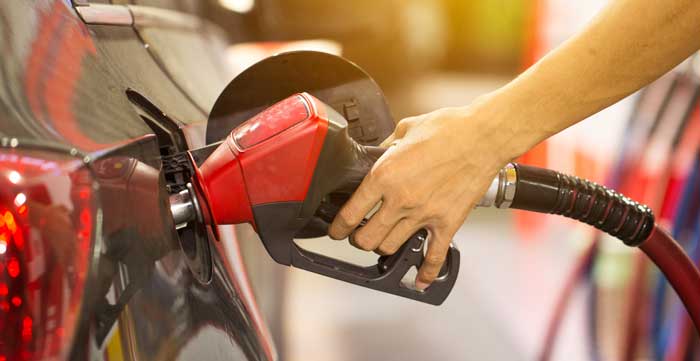
When you own a car, paying for fuel can be one of the biggest expenses, especially if your “car” is a truck or SUV. And gas prices are always fluctuating, so it makes more sense to squeeze out as many miles as possible from every gallon of gas in your vehicle’s tank. When it comes to saving fuel, you have full control. Did you know the way you drive and maintain your vehicle can influence the fuel consumption? Use the following tips to minimize your car’s fuel consumption:
Drive Smoothly
When you drive aggressively, you are wasting fuel, especially at high speeds. Accelerate smoothly and brake softly and early, and minimize how often you change lanes. These techniques not only help you in saving gas, but also prolong the life of your brakes and tires.
Slow Down
When you put that pedal to the floor, a lot of fuel is wasted. For many cars, gas mileage decreases immensely when you drive faster than 50 miles per hour. Slow down and you stand a chance at saving significant amounts of gasoline.
Use Air Conditioning only on the Highway
Fuel economy drops when you use air conditioning at low speeds. However, when you are driving 55 mph or faster, using the air conditioning is preferable, as the engine generates more power at higher speeds, allowing the air conditioning to run more efficiently.
Remove Excess Weight
Carrying extra weight can cause mileage to drop, so it’s best to make your spouse and children bike, or walk. Say what?! Ha! Just checking to make sure you’re still awake. To travel lightly, try to keep only essential items in the vehicle. Make sure your trunk isn’t still full of the donation boxes you’ve been meaning to drop off for the last few weeks.
In the winter, you may need to haul extra gear including an emergency kit, blanket, and chains. That’s okay though, because safety is much more important than saving a few dollars.
Keep Your Engine Tuned
Vehicle tune ups can also improve fuel mileage. Replacing a faulty oxygen sensor may improve mileage by up to 40%.
Tires should be Properly Inflated
Properly inflated tires help keep vehicles safe, offer better handling and increase gas mileage. However, the tires should not exceed the recommended operating air pressure as an overinflated tire can also cause problems. Make sure they are consistently inflated as well, as one under-inflated tire can cause uneven wear and tear on the rubber, which costs you more in the long run when you’re replacing tires more often.
Use the Recommended Motor Oil
Use of a bad grade of motor oil can lower fuel economy. Therefore, you should follow the manufacturer’s recommendations for motor oil at all times. Also make sure you’re changing the oil on time. If you’re not changing it when you’re due you’re putting added stress on your vehicle’s engine.
All Little Things Can Add Up
Changing the worn out fuel filter and spark plugs, having the wheels aligned and inspecting your exhaust and emission systems can improve your mileage. And letting a little thing go too long means you’re now dealing with a big thing, which is even more expensive.
Use the Right Octanes
Your vehicle will run best with the recommended fuel octane, which is specified by the manufacturer of your vehicle. Using an octane that is higher than required can be expensive and it won’t be beneficial for your car.
Alter Travel Practices
But seriously, taking the bus, walking, or riding a bicycle can save you money if you live close enough to work. Unfortunately that’s difficult here in the Midwest so sharing a ride with someone may be a better option. Take turns driving and you can limit your fuel purchases when gas prices are high.
Finally, the best way to save gasoline is to pay attention. Pay attention to the tips above and pay attention to the times you’re sitting in your car, idling, and you just might discover you use a lot more gas than necessary. Hopefully these tips are helpful to you. Do you have any tips we’ve forgotten to mention? Put them in the comments below, we’d love to hear more ideas for saving money on gasoline and other automobile expenses.
